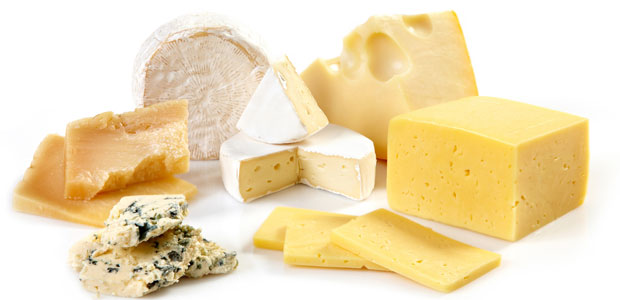Advertisement
Get cooking with one of Canada’s 1,050 types of cheese
Canada produces approximately 1,050 different types of cheese—that’s a whole lot of creamy, stringy, gooey goodness! High in calcium, niacin, and vitamins A and B, cheese delivers a substantial amount of essential nutrients for healthy growth and development. Cheese is broken into six categories: soft, semi-soft, fresh, blue-veined, hard, and firm, with the last kind … Continued

Canada produces approximately 1,050 different types of cheese—that’s a whole lot of creamy, stringy, gooey goodness! High in calcium, niacin, and vitamins A and B, cheese delivers a substantial amount of essential nutrients for healthy growth and development.
Cheese is broken into six categories: soft, semi-soft, fresh, blue-veined, hard, and firm, with the last kind making up about 35 percent of the country’s cheeses. The firmer cheeses, such as gouda, cheddar, and Swiss, have a nutty flavour and milky aroma, whereas the softer cheeses, such as mozzarella, havarti, and Monterey jack, have a milder taste and fresher aroma.
Health Canada recommends the average adult consume two servings of milk or milk alternatives per day. Translated to cheese, that equates to approximately 100 g (3 oz) cheese, about the size of a deck of cards.
However, be forewarned that different types and brands of cheese have different nutritional profiles, so compare labels, especially in terms of fat and sodium content.
To include more cheese your life, try out the following recipes.
- Mozzarella-Stuffed Turkey Meatballs
- Cheesy Waffle Soldiers with Broccoli Soup
- Bubble-n-Squeak
- Apple and Brie Omelette
- Golden Tuna Melt
- Chicken and Pear Bake with Walnuts and Crumbled Blue Cheese
- Marinated Feta, Olive, and Roasted Red Pepper Skewers
And for those with a lactose sensitivity or who choose not to eat cheese due to a vegan diet, try these cheese-less recipes.





